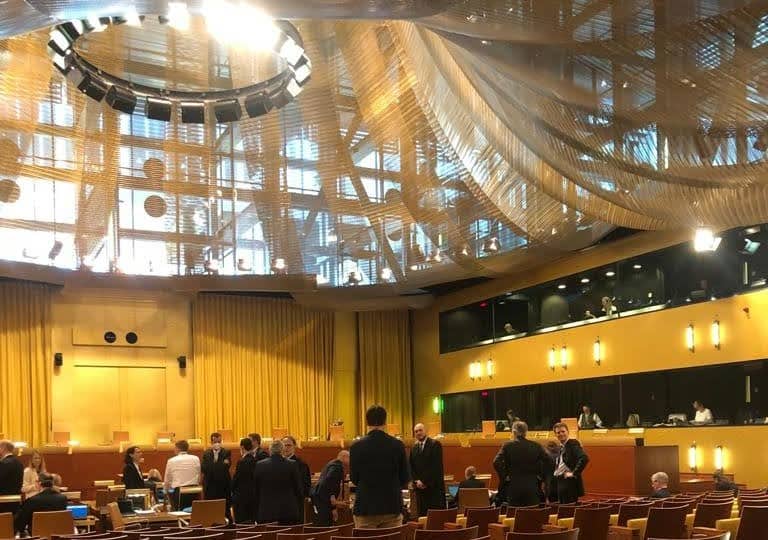The Digital Markets Act contains regulations for a European approach to market regulation of digital platforms. First of all, this includes the identification as a relevant gatekeeper. Artt. 5 and 6 DMA‑E prohibit certain practices. The prohibitions and other provisions of the regulation are to be directly subject to public enforcement. This also includes penalty regulations.
The regulation therefore already contains extensive regulations for public enforcement. However, it does not include independent regulations for private enforcement. The discussion here can be condensed into two essential questions:
- How can private enforcement be carried out according to the current status of the regulation?
- What further regulations should be added for effective private enforcement?
Private enforcement under the current DMA
The lack of direct provisions for private enforcement does not mean that private enforcement is completely absent. At any rate, the prohibition provisions of Artt. 5 and 6 DMA could be applied via the levers of general tort law and fair trading law. Thus, they could be interpreted as market conduct rules in the sense of § 3a UWG. This would correspond to the institutional protection character of the DMA prohibitions. In principle, they also serve the purpose of imposing special competition-related additional obligations on covered gatekeepers. Infringements could thus be subject to claims under § 8 (1) sentence 1 UWG in connection with § 3, 3a UWG. This would be different for the other procedural obligations, which have no such competition reference.
At the same time, the prohibitions proposed in Artt. 5 and 6 DMA are very granular. They contain very specific protection mandates and concrete individual protection purposes can be derived from them in isolated cases. For example, Art. 5 lit. a) DMA can result in individual protection of individual users from involuntary cross-platform aggregation of their personal data. In this case, the data protection rights of the GDPR may be available. However, this would then no longer have anything to do with the question of private enforcement of the DMA. As another example, commercial users are to be protected under Art. 5 lit. b) DMA from offering their products and services independently of the gatekeeper. These two prohibitions can therefore be regarded as protective laws in the sense of § 823 (2) BGB. Accordingly, enforcement in tort would be obvious.
In principle, indirect enforcement by way of the antitrust law basis for a claim under Section 33 (1) GWB could also be discussed. Admittedly, the prohibitions of the DMA are not directly covered by the provisions of the DMA and enforcement by public authorities could not be taken into account. However, in the case of violations of the regulations, violations of antitrust regulations are often obvious at the same time or could be examined in each case. There may then be cases of congruent enforcement. In contrast, Art. 1 para. 1, para. 5 p. 1 DMA also clarifies that this regulation serves different purposes than antitrust law: the latter serves to protect the institution of competition as such, whereas the DMA serves to ensure contestable and fair digital markets. In other words, apart from the same effects of congruent law enforcement in each case, an application of the DMA in antitrust law is even blocked.
Proposals for effective private enforcement
It is possible that the ECJ will at some point repeat its Courage principles and make similar statements for this regulation, namely that it would contradict its purpose if every affected person could not effectively enforce claims for redress or compensation. Then, at the same time, numerous issues would be discussed again that already seem familiar from antitrust law. It would therefore be basically conceivable to apply the Cartel Damages Directive accordingly. An independent set of rules would certainly be more in line with the importance of the DMA alone. In addition, there are some special features in gatekeeper cases. For example, the focus is often less on the sanctioning of damages suffered than on a timely and appropriate participation in the competitive process. This is also what the DMA aims at as a basis for contestability.
Accordingly, private enforcement should place a much higher emphasis on protecting other economic entities as litigants. This can be achieved above all by a clear structuring of access claims. Participants can contest if they have fair access to markets. If markets are embodied by gatekeepers, fair access includes a contracting obligation. In general antitrust law, access can only be enforced indirectly by way of injunctive relief against abusive refusals to deal. This is accompanied by uncertainties and procedural risks. In the DMA, access could be regulated as a positive performance claim, which would have to be provisionally complied with in case of doubt, unless factual reasons are put forward by the gatekeeper.
Fairness could be ensured by more active control of the conditions. It would be conceivable to have enforcement powers in the form of associations in the case of conduct involving stray damages. For commercial users, there could be clarifications that amount to condition control in the context of access to gatekeeper services. Thus, the prohibitions of Art. 5 and 6 DMA could be applied as standard examples in the context of an access claim — access would thus have to be granted in such a way that it complies with the prohibitions.
In other words, a gatekeeper could be spared from private enforcement as long as it sets itself conditions for more contestability and fairness and binds itself to them. A safe harbour regime could offset the burdens on corporate self-design that come with ex ante regulation by the DMA. At the same time, the current provisions of the DMA already contain rules under which gatekeepers can escape regulation, but these are linked to the addressee or prohibition obligations. These could be expanded to include regulations on commitment measures in favour of contestability and fairness, which would then be declared binding by the Commission, provided they meet the purposes of the DMA. This could also be done by means of a Europe-wide certification mechanism.


















